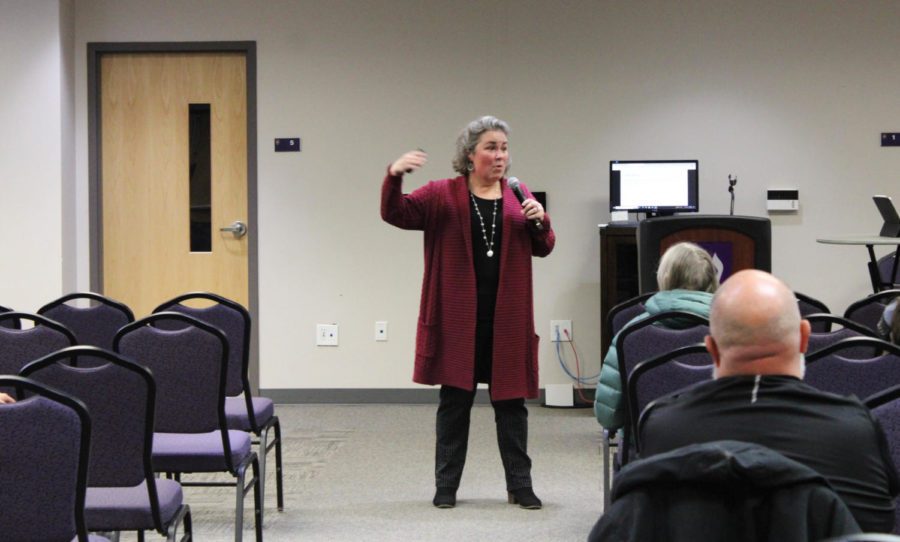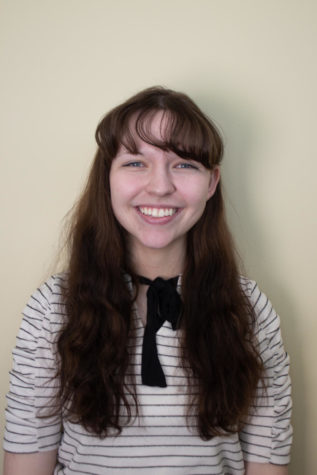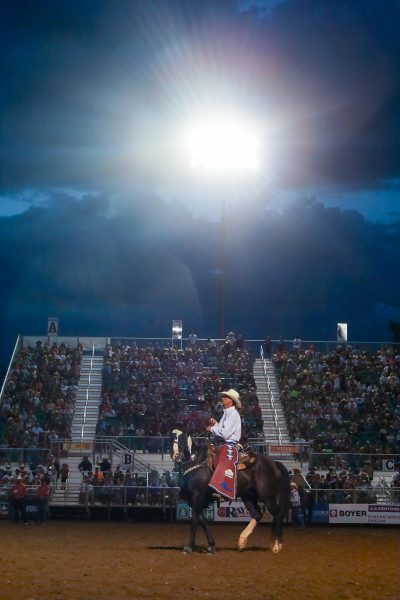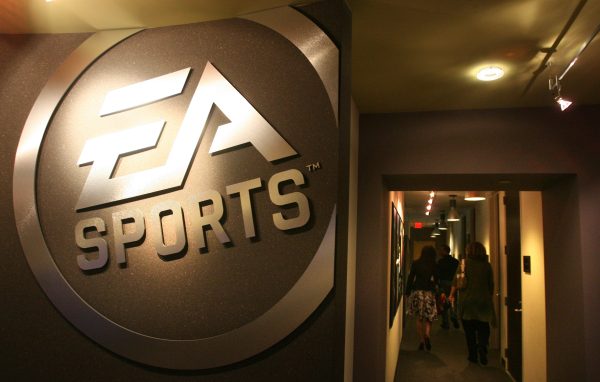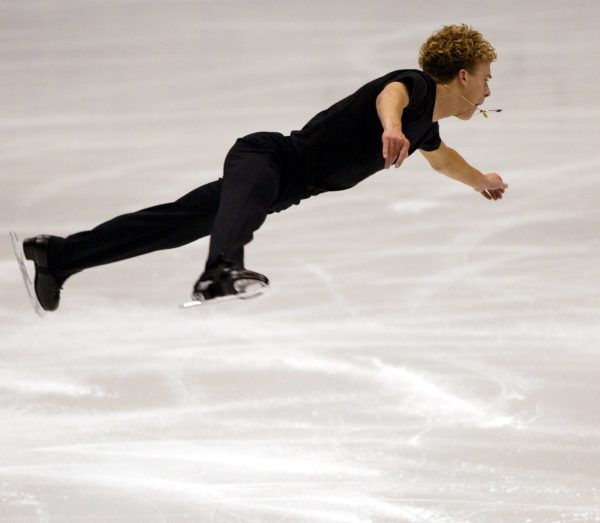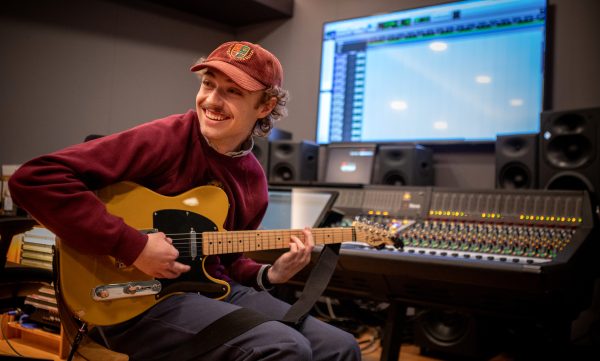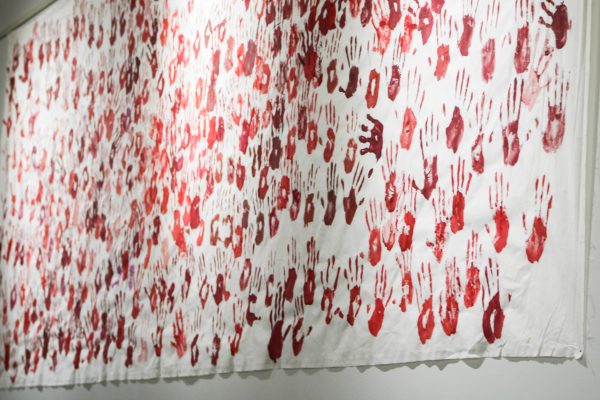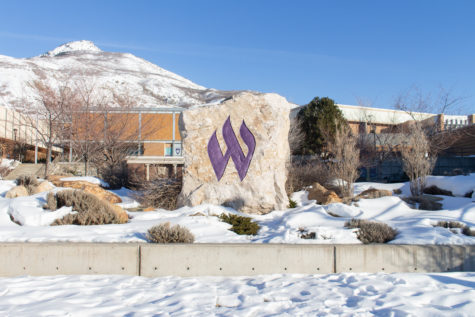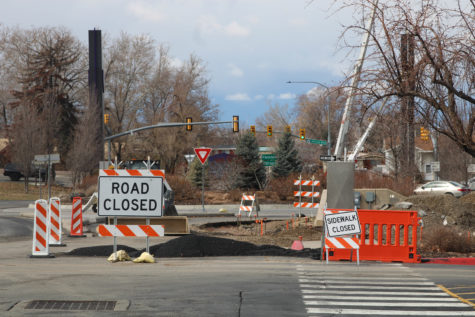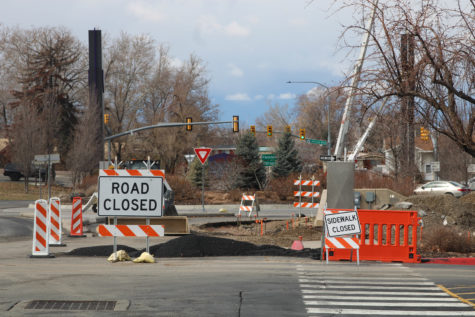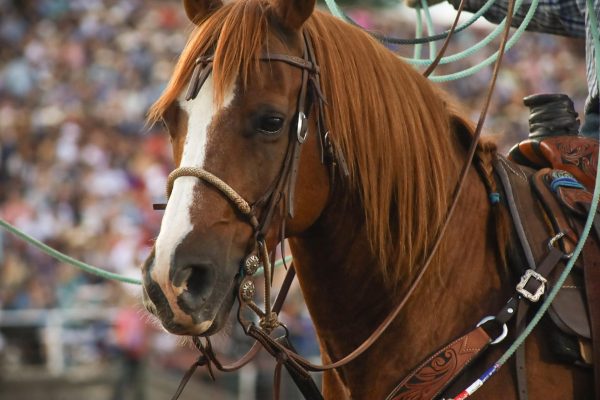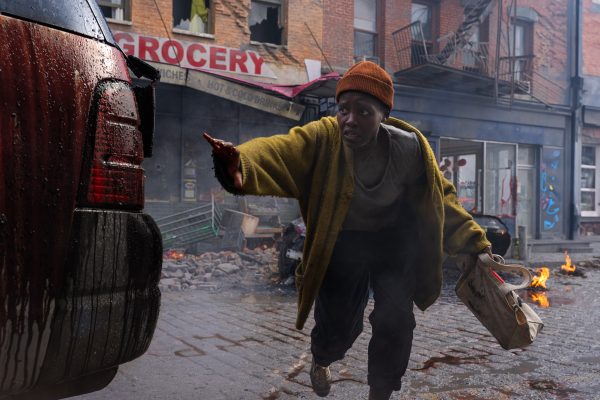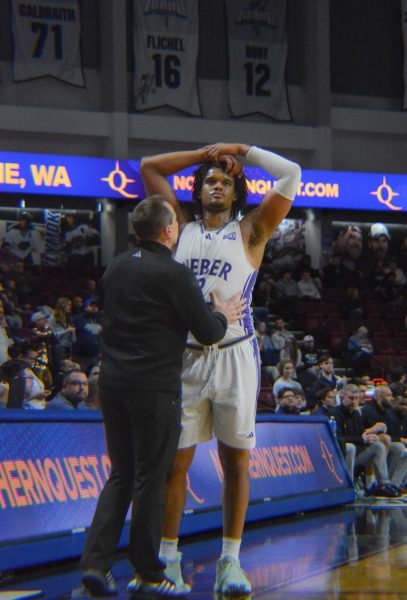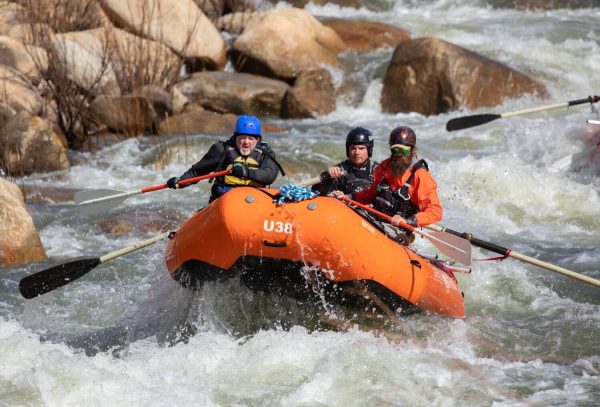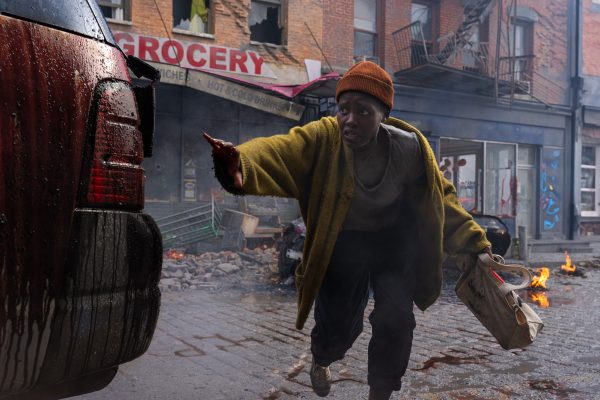A Midterm with Murray
As part of the Weber Historical Society Lecture Series, Dumke Legacy Hall hosted a lecture on Nov. 14 titled “The Meaning of the 2022 Midterm Elections.” The lecture was presented by Leah Murray, director of The Walker Institute and political science professor at Weber State University.
As Murray analyzed recent political events, she showed gratitude for having a job that allows her to showcase the work that she is most passionate about and giving her the opportunity to lecture.
Murray has been a staple during elections for the Historical Society Lecture Series. Eric Swedin, a WSU history professor, is in charge of facilitating these events each year. There are seven different lectures per academic year, with three in the fall and four in the spring.
“We have brought in Dr. Murray for years,” Swedin said. “Every two years we bring her in, after an election or midterm election and she explains it … It is educational, it is a great opportunity to understand – from a political science perspective – what is going on.”
Swedin’s goals with the Historical Society Lecture Series events are to create a wide variety of topics regarding history in Utah.
Swedin wishes to address Utah events such as Native American history, as well as political topics, such as Murray’s lecture. These events are community-oriented, free and open to the public.
“I am pretty passionate about talking about politics,” Murray said. “I think too often we are told not to talk about it. My students in Utah will say, ‘It is too controversial, it is too divisive, like we should not talk about it,’ and my concern is that we solve all of our problems through politics, right, everything we have as a collective issue we solve through politics — if we cannot talk about things, how are we ever going to rise to the challenge to solve any of the problems?”
Murray’s family discussed politics in a civil way, during evenings together over supper, and that open, civil, friendly and familial way of being able to discuss politics struck her interest.
Murray explained the impacts of how geographics, abortion stance, education, age, religion and more determine political outcomes.
“It is not really about what religion you are; it is how into it you are,” Murray said. “How we define how into it you are is by how often you go … The answer basically is, the more often you go, the more you vote Republican. So, our people who are never going are voting Democrat.”
Murray also said younger people between ages 18-29 do not get too involved with the political climate. John Trask, one of two WSU students who attended Murray’s lecture, expressed their feelings about the importance of being politically educated.
Trask believes that the struggle of maintaining a work-life balance is a contributor to why there was such a small population of students at the lecture.
“We are going to school, may have part- or full-time jobs, we are making big and important career decisions about our lives,” Trask said. “Getting the word out about lectures like these really makes an impact about how your individual vote matters.”
For students unable to attend, Murray still encourages them to stay updated on the politics around them.
“Going to events like what we had last night, being aware of what is happening in your community, paying attention to local news — all of those are good ways to be informed,” Murray said.



